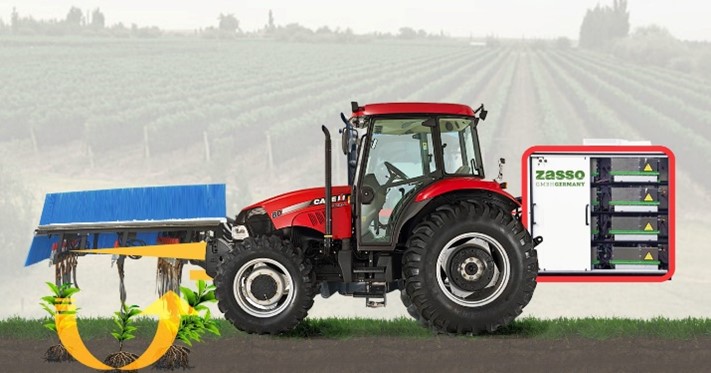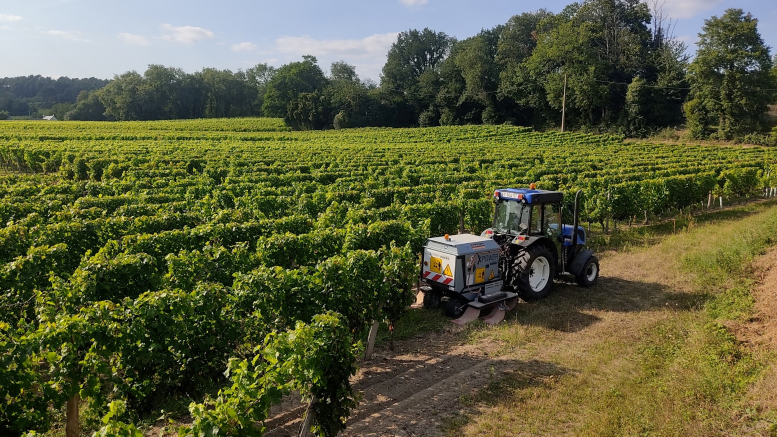“The electric current flows from the applicator to the plants and is translocated through conductive vessels (xylem and phloem) until it reaches the roots.”
Sergio Coutinho is the Co-CEO and founder of Zasso, with a bachelor’s degree in business administration from IBMEC SP (Insper).
Zasso is a company specialized in weed control through electricity, without the use of chemicals. In October 2021, CNH Industrial, the second largest agricultural equipment manufacturer in the world, became a minority shareholder in the company.

Sergio Coutinho, Co-CEO and founder of Zasso
AgriBrasilis – How is the electrical control of weeds performed? How is the system able to distinguish which plants must be removed?
Sergio Coutinho – The goal of weed control via electric weeding is to eliminate unwanted plants in a sustainable and effective way.
Electric weeding works through locally generated electricity, using the tractor’s mechanical energy. The electric current flows from the applicator to the plants and is translocated through conductive vessels (xylem and phloem) until it reaches the roots. The electrical circuit is closed through a second applicator. The energy injected into the plants destroys their cells down to their roots, eliminating them.
In this way, only the plants touched by this “electric arc” receive the electrical discharge, without negative effects on microorganisms and other soil elements.
The physical contact of the target plant with the high voltage electrodes establishes a current flow that acts only at the time of application and does not leave residues in the soil.
One of the advantages of electric weeding is that the mode of action is systemic, that is, it controls the plants that come into contact with the electrodes from the leaves to the roots and guarantees an effective treatment, comparable to that of chemical herbicides.

This method does not present any risk of contamination, since it is based only on the physical medium (electrocution). Therefore, there is also no risk of intoxication, one of the biggest problems related to herbicides. The procedure is up to 20x faster than manual removal and certified for use on organic crops.
AgriBrasilis – For which crops is the system suitable? Where is it already being successfully used?
Sergio Coutinho – The technology is being used throughout the urban scenario, by public or private agents, for cleaning and maintenance of streets and highways, and in facilities sectors.
In the agricultural sector, electric weeding is being used in virtually all scenarios, both for large and small farmers, in citrus, coffee, grapes, bananas…
Manual weeding performs only leaf control, with no damage to the roots and has an average durability of 20-30 days between treatments. Through the definitive elimination of the invasive plant via the root, electric weeding has an average durability of 70 to 90 days between treatments.
The decrease in annual costs associated with weeding in cities is five times lower compared to the traditional mechanical method.
AgriBrasilis – How does Zasso operate in cities and/or guarantee safety and results in its applications?

Sergio Coutinho – Zasso is very concerned about the safety of its operations, and about its results, and is guided by current legislation in the country to manufacture, distribute and operate its equipment, mainly via NR10 and 12 (regulatory standards), applicable to the technology.
Zasso has trained and certified partners that guarantee the company’s requirements in terms of safety, as well as good results for city halls and clients from different sectors.
READ MORE:

